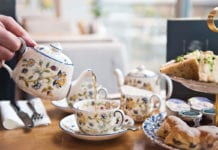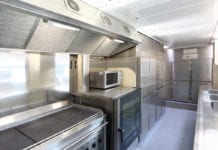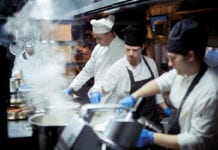WITH a steady stream of new technology and innovation from manufacturers, commercial kitchens now have more versatile equipment to choose from than ever before.
Equipment suppliers claim a single piece of kit can have many different uses and is often able to influence a bar or eatery’s menu without significant financial outlay.

“The latest light catering equipment offers caterers the opportunity to buy new equipment when they want to extend their menus, without heavy investment,” said Simon Frost of the Catering Equipment Suppliers Association (CESA).
“For example, a panini grill or a potato baker can be used to create a whole new range of foods, with the equipment costing just a few hundred pounds or less.”
Subsequently, modern equipment can actually help to reduce the workload in the kitchen, according to John Turner, head of commercial sales at Thermomix.
He said new kit can be “like an extra pair of hands in the kitchen and sometimes two”.
Different chefs will require different tools depending on the requirements of their menu, but some may also need more specialist equipment.
The type of kitchen kit needed “depends on an operator’s specific menu”, said Heather Beattie of catering equipment supplier Nisbets.
“By looking beyond standard cooking methods, publicans have the opportunity to really make their menu stand out,” said Beattie.
But by far the biggest advantages of new technology are in time-saving and versatility.
Beattie added: “Food processors are the ultimate time-saver for busy kitchens.
“Whether you are looking to mix, slice, shred or even whip, a food processor is that one piece of equipment which can do a multitude of tasks.”
Mark Hogan, marketing and sales manager of Foodservice Equipment Marketing (FEM), said blenders, in particular, can be useful pieces of kit in contemporary kitchens.
“Not only can they be used for liquidising, blending, pureeing and emulsifying, but they are ideal for chopping and grinding nuts, breadcrumbs and herbs,” he said.
Baking, in addition to cooking, has become more prominent in the trade in recent years.
And Laurent Valbret, managing director of Creeds, advised operators to “invest in the right mixer” for their premises.
He added: “It’s the one essential piece of kit no pub kitchen should be without.”
Multi-tasking and cutting workload aren’t the only benefits of having cutting-edge technology in the kitchen.
Trevor Burke, managing director of Exclusive Ranges, said energy efficiency is important for many operators.
“By using less energy you can also improve the working environment by reducing the residual heat in the kitchen and in doing so, improve staff morale,” he said. “In many cases this will also result in better food quality and hygiene standards too.”
Steve Elliott, of Valentine Equipment and Cuisinequip, agreed energy use and efficiency were important in a busy commercial kitchen.
He added: “We see many operations choosing systems like combination ovens and induction cooking.
“With less energy use, faster heat-up, programmable control and ease of use they are becoming the norm for many operations.”
Although technology has improved, with digital devices and hi-tech processes becoming more common, suppliers stressed that equipment should only be used as intended.
A spokeswoman from ETI Ltd, which supplies Thermopen thermometers, said: “Kitchen equipment is generally aimed at specific tasks and designers have spent a lot of effort to ensure they work efficiently. The improper use of equipment is undoubtedly the major cause of failure.”























